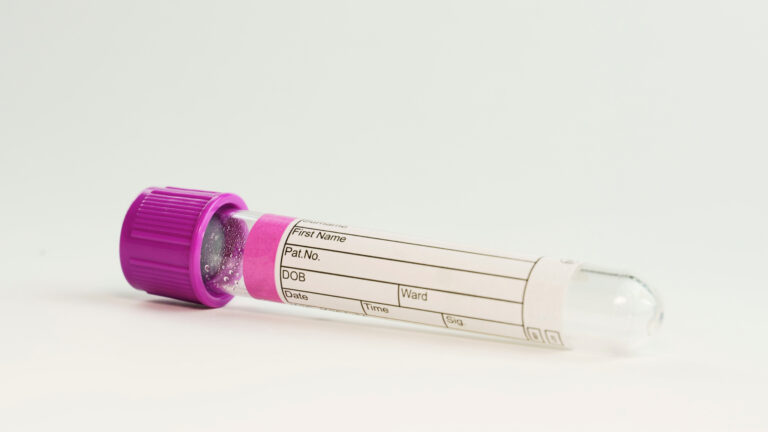A new study finds that the element lithium plays a crucial role in healthy brain function and suggests it could be used to treat Alzheimer’s disease.
In a Nature study published on Wednesday, researchers found that the brain produces lithium, and that the hallmark of Alzheimer’s disease — beta-amyloid plaques — sequesters that lithium to accelerate the disease. By giving mice with mild and severe Alzheimer’s low levels of lithium salts in their water, scientists were able to reverse pathological changes and memory loss.
“Lithium has been on the radar for a long time as a potential treatment for Alzheimer’s disease, but it hasn’t yet gained full momentum,” Matthew Schrag, assistant professor of neurology at the Vanderbilt University Medical Center, told STAT. “This study certainly seems to convincingly show that lithium levels in the brain and Alzheimer’s disease might be low, which is an interesting finding.” Schrag was not involved in the study.
Lithium, which generations of students learn is the third element on the periodic table, has for decades been an approved treatment for patients with bipolar disorders. In the form of lithium carbonate, it is considered the first-line treatment for management of symptoms such as mania and depression.
In a large 2017 study, researchers from Denmark found that exposure to higher long-term lithium levels in drinking water may be associated with a lower incidence of dementia. And Bruce Yankner’s group at Harvard had been studying the idea of lithium levels in the brain and how they correlate to Alzheimer’s for almost a decade.

“That [Denmark] study now, together with ours, where we’ve looked directly at the Alzheimer’s brain, and demonstrated that there’s a biological consequence to changing endogenous lithium — I think it is a very interesting combination,” Yankner, professor of genetics and neurology at Harvard Medical School and lead study author, told STAT. He was also the first to describe the beta-amyloid protein to be toxic in the brain.
Yankner noted that his group tested lithium salts solely on mice and that people should not start taking lithium salts on a whim. Although lithium is approved for treatment of bipolar disorders, it can be toxic, particularly in older people — the group most affected by Alzheimer’s.
Alzheimer’s disease, which affects 1 in every 9 people 65 years or older in the U.S., remains without a cure. Alzheimer’s affects memory due to the accumulation and failure to clear beta-amyloid plaques.
When Yankner and his team examined the region of the brain burdened by Alzheimer’s, along with blood samples from patients with varying stages of disease, they found that lithium was the only metal that was significantly reduced in mild and severe Alzheimer’s cases. Yankner also reported that “the lithium that was left in the brain was trapped in these amyloid beta deposits, reducing its bioavailability.” This led the researchers to explore the effects of lithium deficiency in mice engineered to have Alzheimer’s.
Mice given a lithium-deficient diet showed increased beta-amyloid plaques in the brain and impaired learning and memory. They also had impaired function of cells such as neurons and microglia — responsible for mediating electrical signals in the brain and clearing debris such as beta-amyloid plaques, respectively. All these elements are hallmarks of Alzheimer’s.

Major Alzheimer’s group says some blood tests may be used in place of brain scans for diagnosis
The researchers then wondered whether supplementing lithium to the brain, by giving mice lithium salt in their water, would reverse these pathological and memory changes. For the treatment of bipolar disorders, clinicians prescribe lithium carbonate. In this study, Yankner questioned if lithium carbonate was the best drug to allow the beta-amyloid plaques to release the lithium they were sequestering. He turned to an organic lithium salt, lithium orotate, which had the ability to evade beta-amyloid plaques and still be therapeutically potent.
“When we gave it in vivo, we could show that lithium carbonate was sequestered at plaques, whereas lithium orotate much less so,” Yankner said, “it got into the surrounding non-plaque regions and cells more effectively.”
By giving mice a dose of lithium orotate — enough to raise lithium to normal physiological levels — they were able to reverse learning and memory impairments and beta-amyloid plaque burden by 70% in aging mice. In some cases of mice with advanced disease, lithium orotate almost completely eliminated amyloid beta plaques.
“One of the remarkable things about lithium is its widespread effects on the various pathological cellular manifestations of the disease. But what has been lacking is a parsimonious explanation for the disease,” Yankner said, “Lithium is a potential candidate for a common mechanism and one that is therapeutically tractable.”
The Alzheimer’s field has made some breakthroughs in diagnostic and therapeutic strategies. In May, the Food and Drug Administration cleared the first blood test to detect amyloid plaques in adults 55 years or older. The Alzheimer’s Association announced last week its first clinical guidelines on blood biomarker testing. Also last Tuesday, the U.S. POINTER clinical trial released results that showed a structured intervention that included changes in exercise and diet had greater benefit for slowing cognitive decline.
Lithium salts as a treatment for Alzheimer’s disease has been explored in clinical trials before but did not yield promising results. The studies were short-term and utilized lithium salts similar to lithium carbonate, which in this study did not show the ability to reduce cognitive decline or beta- amyloid plaques.
“It is exciting to see that this could potentially play a role in Alzheimer’s disease pathology, and how it’s modulated in the brain,” Gillian Coughlan, instructor of neurology at Massachusetts General Hospital, told STAT, “I think it’s a great first step.” She was not involved in the study.
Given the toxicity of lithium, Yankner noted that larger studies using lithium orotate would need to be conducted to find a nontoxic dose. But he expressed hope that his team’s study can soon be expanded into a clinical trial, testing lithium orotate as a preventive treatment for Alzheimer’s.

